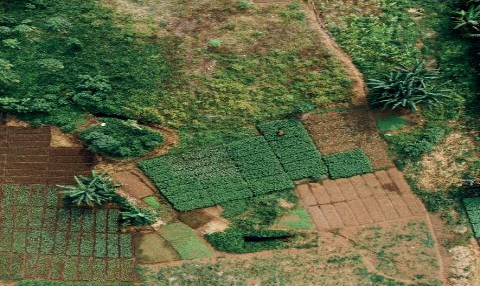Stakeholders in the peace-building, humanitarian and development space have emphasised the need to integrate climate sensitive approaches into resolving conflicts in Nigeria.
The stakeholders unanimously agreed to this approach at the inaugural meeting of Nigeria Conflict Sensitivity and Climate Adaptation Facility (NC-SAF) on Thursday in Abuja.
The meeting was organised by International Alert, with support from Irish Aid.
According to the stakeholders, climate-sensitive conflict action prioritises understanding and addresses the interconnections between climate change and conflicts.
They stated that by adopting climate-sensitive adaptation, Nigeria could mitigate climate-related conflicts, promote sustainable peace and development as well as enhance sustainable peace in vulnerable communities.
The Country Director for International Alert, Dr Paul Nyulaku-Bemshima, said the meeting brought together a range of stakeholders to discuss the existential issues of insecurity facing Nigeria.
According to Nyulaku-Bemshima, Irish Aid is supporting International Alert to implement the “Powering Peace Through Climate Actions.”
This, he said, was because climate change was impacting communities, drying up grazing areas, making farming difficult and affecting food security, with productivity going down.
“As a result, the competition between occupational groups, such as headers and farmers, is increasing, becoming more intense and escalating conflicts in different parts of the country.
“Most conflicts in Nigeria are resource-based conflicts and so by that, we need to look at the issue of conflict and insecurity from a climate lens.
“This is because if we fail to do that, then the very drivers of the insecurity that we see will continue to fester,” he said.
Nyulaku-Bemshima said the banditry and insecurity in the north-west zone was impacting communities being influenced by climate change issues.
He said that most headers were moving south in search of grazing areas, thus creating tensions in those areas, such as the farmer-header conflicts.
According to him, the crises are being driven by climate change, thus necessitating the need to ask critical questions around insecurity and humanitarian development.
He said that a joint strategy would be required to address those issues at the national, state and community levels.
He called for conflict-sensitive policy-making to recognise the drivers of conflicts and respond to them.
Also speaking, the Senior Special Assistant to the President on International Cooperation, Mr Dapo Oyewole commended International Alert for the initiative.
He said that the Federal Government was committed to tackling the effects of climate change, which he described as a “global problem.”
He said that it required a holistic approach by government, civil society, international development community, and the citizens to find lasting solutions.
“Climate change tops the President Bola Tinubu administration’s agenda, with efforts focused on creating an enabling environment for prosperity, peace and security,” he said.
Oyewole said to tackle climate change, government had set up initiatives and interventions to bring critical stakeholders together by providing resources to chat the way forward.
Peace and Development Advisor, Office of the UN Resident Coordinator, Dr Kimaris Toogood stressed the importance of recognising the role conflict sensitive approach played in the work of climate peace and security.
“By that I mean that the root of addressing and responding to climate change and conflict induced by climate change comes from understanding the root causes.
“It is only if we diagnose or understand the conflict correctly that our response will be able to be accurate, sustainable and resilient,” she said.
NAN


